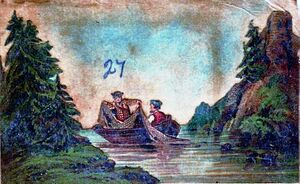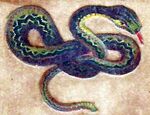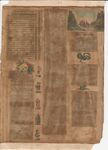HPB-SB-7-63: Difference between revisions
mNo edit summary |
No edit summary |
||
| (One intermediate revision by the same user not shown) | |||
| Line 11: | Line 11: | ||
| item =1 | | item =1 | ||
| type = article | | type = article | ||
| status = | | status = ok | ||
| continues = | | continues = | ||
| author = | | author = | ||
| title =Muslim | | title =Muslim publicists now recall | ||
| subtitle = | | subtitle = | ||
| untitled =yes | | untitled =yes | ||
| source title = | | source title = Russkiy Mir | ||
| source details = | | source details = Sunday, March 10, 1878 | ||
| publication date = 1878- | | publication date = 1878-03-10 | ||
| original date = | | original date = | ||
| notes = | | notes = | ||
| categories = | | categories = Text in Russian | ||
}} | }} | ||
Muslim | Muslim publicists now recall the prophecy expressed in 1453, after the capture of Constantinople by the Turks. This prophecy, which we talked about casually two years ago, says, among other things, the following: "Two hundred years from now, the bear will attack the crescent moon; but the rooster will unite with the bull, and the bear will not win. But after two decades – let Islam know and be afraid – the Cross will rise again, and the Moon will turn dead, fade and disappear." – The Crimean war, generated by the union of the French "rooster" with the English "bull", arose exactly four centuries after the occupation of the ancient capital of Byzantium by the Turks; and twenty years later, according to the prediction, the Christian movement began, which led Turkey to its final demise. Turkish patriots now recognize that their "empire" has long been destined for a fatal end, from which diplomats of the High Porte tried in vain to escape. | ||
| Line 34: | Line 34: | ||
<center>Воскресенье, 26 февраля (10 марта) 1878 г. №55.</center> | <center>Воскресенье, 26 февраля (10 марта) 1878 г. №55.</center> | ||
... | Мусульманскiе публицисты вспоминаютъ теперь о пророчествҍ, высказанномъ въ 1453 году, послҍ взятiя Константинополя турками. Это пророчество, о которомъ мы говорили какъ-то вскользь два года тому назадъ, гласитъ, между прочимъ, слҍдующее: «Черезъ дважды двҍсти лҍтъ медвҍдь нападетъ на полумҍсяцъ; но петухъ соединится съ быкомъ, и медведь не победитъ. Но вотъ черезъ дважды десять лҍтъ, – пусть знаетъ исламъ и страшится, – Крестъ снова возстанетъ, и Луна помертвҍетъ, поблекнетъ и исчезнетъ». – Крымская война, порожденная союзомъ французскаго «пҍтуха» съ англiйскимъ «быкомъ», возникла ровно черезъ четыре столетiя послҍ занятия турками древней столицы Византiи; а черезъ двадцать лҍтъ, согласно предсказанiю,началось христiанское движенiе, приведшее Турцiю къ окончательной гибели. Турецкiе патрiоты признаютъ теперь, что ихъ «имперiи» давно уже предназначенъ роковой конецъ, отъ котораго напрасно старались ускользнуть дипломаты Высокой Порты. | ||
---- | ---- | ||
Latest revision as of 02:17, 11 February 2024
<Untitled> (Muslim publicists now recall)
Muslim publicists now recall the prophecy expressed in 1453, after the capture of Constantinople by the Turks. This prophecy, which we talked about casually two years ago, says, among other things, the following: "Two hundred years from now, the bear will attack the crescent moon; but the rooster will unite with the bull, and the bear will not win. But after two decades – let Islam know and be afraid – the Cross will rise again, and the Moon will turn dead, fade and disappear." – The Crimean war, generated by the union of the French "rooster" with the English "bull", arose exactly four centuries after the occupation of the ancient capital of Byzantium by the Turks; and twenty years later, according to the prediction, the Christian movement began, which led Turkey to its final demise. Turkish patriots now recognize that their "empire" has long been destined for a fatal end, from which diplomats of the High Porte tried in vain to escape.
Original in Old Russian
Мусульманскiе публицисты вспоминаютъ теперь о пророчествҍ, высказанномъ въ 1453 году, послҍ взятiя Константинополя турками. Это пророчество, о которомъ мы говорили какъ-то вскользь два года тому назадъ, гласитъ, между прочимъ, слҍдующее: «Черезъ дважды двҍсти лҍтъ медвҍдь нападетъ на полумҍсяцъ; но петухъ соединится съ быкомъ, и медведь не победитъ. Но вотъ черезъ дважды десять лҍтъ, – пусть знаетъ исламъ и страшится, – Крестъ снова возстанетъ, и Луна помертвҍетъ, поблекнетъ и исчезнетъ». – Крымская война, порожденная союзомъ французскаго «пҍтуха» съ англiйскимъ «быкомъ», возникла ровно черезъ четыре столетiя послҍ занятия турками древней столицы Византiи; а черезъ двадцать лҍтъ, согласно предсказанiю,началось христiанское движенiе, приведшее Турцiю къ окончательной гибели. Турецкiе патрiоты признаютъ теперь, что ихъ «имперiи» давно уже предназначенъ роковой конецъ, отъ котораго напрасно старались ускользнуть дипломаты Высокой Порты.

Faith and Love
Celia Logan's Letter
...
     |

Cremated Baron De Palm's Will
...

The Will of the Baron De Palm
...

The Bubble
...
Editor's notes
- ↑ Muslim publicists now recall by unknown author, Russkiy Mir, Sunday, March 10, 1878
- ↑ Faith and Love by unknown author
- ↑ Celia Logan's Letter by Logan, Celia, Sunday News, The, Bultimore Sunday, March 24, 1878
- ↑ image by unknown author
- ↑ image by unknown author
- ↑ image by unknown author
- ↑ image by unknown author
- ↑ image by unknown author
- ↑ image by unknown author. colored fishers in boat
- ↑ Cremated Baron De Palm's Will by unknown author, World, The, Thursday, April 11, 1878
- ↑ image by unknown author. colored snake
- ↑ The Will of the Baron De Palm by unknown author, Sun, The, Thursday, April 11, 1878
- ↑ image by unknown author. colored frog
- ↑ The Bubble by Holt, R. B.

